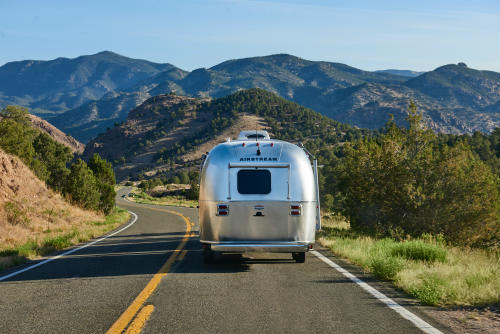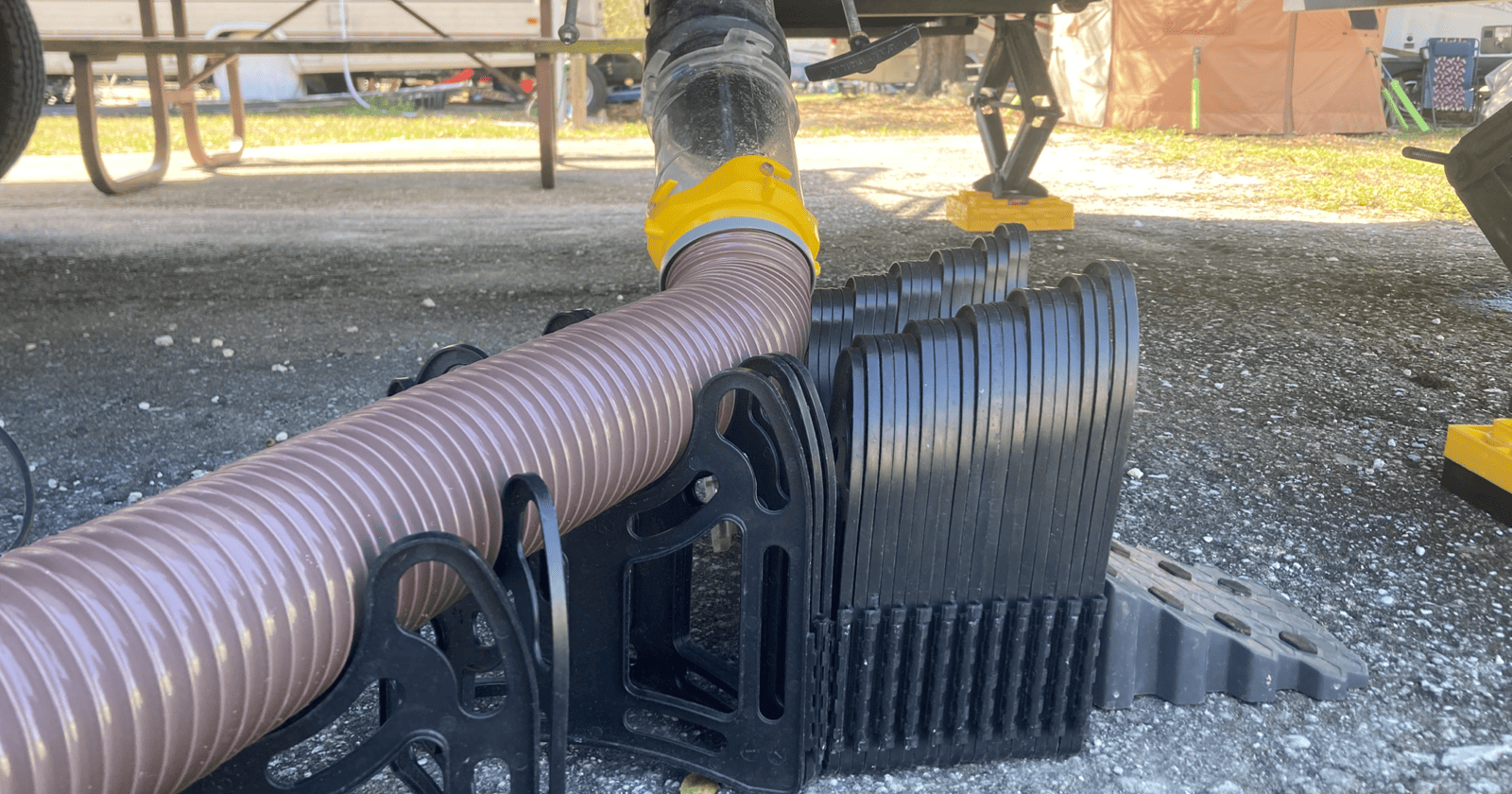Life out on the open road is exhilarating and liberating. Without a foundation anchoring your home to the ground, getting a change of scenery is as easy as firing up the GPS, retracting the awning, and stepping on the gas pedal. It’s the ultimate freedom, the reason so many people spend their whole lives dreaming of the day they can hop in an RV and travel full-time. But adjusting to the RV lifestyle can be surprisingly challenging. These challenges range from the existential – the magnitude of the land, the overwhelming number of destinations, the feeling of being so small in such a large world – to the practical – making it to the next gas station, finding a cell signal, and yes, how to receive mail when living in an RV full-time. Even though we’re in the digital age, physical mail is still a critical part of society, and being without a permanent address can throw a wrench in even the best-laid of life plans.
There are so many aspects of modern life that we take for granted when we live at a fixed location simply because we don’t have to think twice about how we receive mail. When a relative asks where to mail a birthday card or we fill out the address section of a bank form, we can respond almost automatically. But when you’ve packed your life into an RV and renounced your permanent residence, these situations suddenly become much trickier to navigate.
So how do you receive mail when you live in an RV full-time? And how do you handle official business like banking, taxes, voting, and insurance while living the RV life? Read on to learn the answers to these questions and more – once you do, you’ll feel more confident than ever about your future full-time travel.
#1 – State of Existence
The United States is a massive country, bested in size by very few things, one of them being its lawbook. Indeed, in addition to the federal laws that apply across the nation, each state has its own set of regulations pertaining to many aspects of RV living – vehicle registration, insurance, residency, and more. What’s more, many of these laws contradict those of other states, so your interstate travels will require you to learn the ropes of multiple localities and plan your path to work around the knots.
The law is clear about one thing, though, and that’s the need for a domicile. A domicile is a permanent address that you use to file taxes, renew your driver’s license and vehicle registration, register to vote, get summoned for jury duty, open bank accounts and receive government notices. Your domicile isn’t necessarily where you currently live; rather, it’s the location you’ve claimed as home base for these official purposes.
When you become a full-time RVer, you’ll need to choose a state to declare domicile in. For most people, this won’t be the state they currently live in – many states have strict requirements for claiming domicile within them, such as living in the state for at least six months out of the year, that can’t be met when you spend most of your time traveling. You’ll need to use the huge variance in state laws to your advantage here and claim domicile in a more lax locality.
#2 – The Traveler-Friendly Trio
Ask any seasoned RVer where they’ve claimed domicile and their answer will most likely be Florida, South Dakota, or Texas. These three states are known throughout the RV community as the states with the most traveler-friendly laws. By choosing one of them as your state of domicile, you’ll minimize the hoops you need to jump through in order to become a legal resident and get the logistics of your new life out of the way.
#3 – Florida for Simpler Vehicle Inspections and Driver’s License Renewals
Florida doesn’t require annual vehicle inspections, meaning you won’t have to return each year to get your sticker renewed. The state’s registration and licensing procedures are simple and straightforward; you can even renew your driver’s license online once. With no state income tax and a decent selection of health insurance plans that can be used nationwide, it’s the domicile of choice for many younger RVers and others who purchase private health insurance.
#4 – South Dakota for Low Insurance Costs
South Dakota’s remoteness and relatively low crime rate result in low insurance costs, and it’s these big savings that attract thrifty RVers to the Mount Rushmore State. Like Florida, South Dakota allows its permanent residents to renew their licenses remotely and doesn’t mandate annual inspections or collect income taxes. Those who choose to domicile in South Dakota can also enjoy easy jury duty exemptions and only need to spend 24 hours in the state before claiming residency, though health insurance options there are limited – most plans only work in-state.
#5 – Texas for Health Insurance, No State Income Tax, and Cheap Vehicle Insurance
Texas is a little more strict than the other two states when it comes to licensing and inspection. RVs over a certain weight will require you to qualify for a class B license, and regardless of vehicle weight, you’ll need an annual inspection, though your old one will remain valid after expiration until you reenter the state. However, you’ll have a good variety of health insurance plans to choose from in Texas that work around the country. You won’t need to pay a state income tax and vehicle insurance can be very reasonable depending on where in the state you’re domiciled.

#6 – Other States
Other state regulations may apply to you depending on your particular lifestyle, so don’t forget to look into these as well. Small business owners will need to take their licensing and operations into account; tradespeople may need to transfer their state-issued certifications, which in some cases may require taking additional courses or exams. Parents of school-age children should research homeschooling requirements, as these vary wildly from state to state.
You’ll need to consider more than just each state’s regulations in your decision: your personal preferences are important as well. If you predict that you’ll travel a lot in a certain region, choosing a state within that region can make things easier when it’s time to register or renew various things. Whichever state you choose, make sure it’s one that you won’t mind spending some time in – it’s important to affirm your residency by having some record of time spent there, whether that’s working, volunteering, studying or just extensively exploring.
#7 – Taking Care of Business
So you’ve selected the state you want to be domiciled in. Now you need to establish an address there and transfer all your important documents and accounts to it. This is a tricky enough task when you’re moving to a fixed location – what do you do when you’re not actually moving there?
If you’ve got friends or relatives in your chosen state, you may be able to use their address as yours. This is a big decision for both parties, so make sure to discuss it thoroughly before going through with it. You’ll be entrusting them with your mail and essentially claiming that you live with them, while they’ll now have to consider you part of their household, which can impact their taxes and any government benefits they receive.
Should you decide that you’d rather have your own address, or if you don’t know any suitable address surrogates in your state of choice, you’ll need to go a different route. Most full-time RVers use a special mail service provided by companies that work specifically with people who live in RVs (keep reading for a list of several reputable ones). Each of the three RV-friendly states listed above has its own assortment of these companies; some companies operate in all three, while others serve states not listed.
When you sign up with one of these companies, you’re provided with a street address in your chosen state that you can give out as if it were your actual residential address. You’ll use it to establish your domicile in the new state by registering to vote, transferring your driver’s license, starting insurance policies and updating your financial accounts. Some companies have staff members whose job it is to help you with these processes, which can be complicated and tedious depending on the state.
Not all states require you to file an intent to domicile, but it’s a good idea to do so anyway: it’s a simple affidavit stating that you’re claiming the state as your permanent residence. A local lawyer can help you draft and file it according to your chosen state’s requirements. Once it’s completed, you’ll have an official record on file of your new domicile that serves to back up your claim of residency; hopefully you won’t ever need it, but if you do, you’ll be glad you took the time to file it!
Cross-Country Correspondence: Ways to Get Mail on the Road
So you’ve established your domicile in your state of choice and you’re ready to hit the road in your RV. But there’s still one piece of the puzzle that’s missing: actually receiving your mail once your travels have begun. Sure, everyone has your new domicile address now, but what good does that do if you’re on the other side of the country?
The way you receive your mail while RVing will depend on the type of mail and on which method you used to establish your domicile. Generally, the process goes much more smoothly if you used a mail forwarding service than if you took a more DIY approach, but even if you chose the latter, there’s no need to go postal! Let’s go over all the ways to get your mail now that you’re a full-time RVer.
#1 – Mail Forwarding Services
If you’re using a mail forwarding service for your domicile address, all of your correspondence from the government, financial institutions,
#2 – 3 Reputable Companies That Offer Mail Forwarding Services Include :
For those who don’t want their mail opened for them, mail forwarding companies will do as their name suggests: forward your mail to the address of your choice, where you can pick it up and open it yourself. Time-sensitive mail can often be sent via overnight shipping upon request. Read on to learn where you can have your forwarded mail sent.
#3 – The Post Office

If you’ve found a nice spot to park and plan to stick around for a few days or more, you can utilize the services of your local post office. Letters and packages shipped via USPS can be delivered to the post office addressed to your name, with “General Delivery” in lieu of a street name and number. When the post office receives mail addressed in this way, it will hold it until you arrive to pick it up; just show your ID and collect your mail.
It’s a good idea to go to the post office before having anything sent there to confirm their hours and policies for General Delivery. Some postmasters will only allow you a certain number of General Delivery articles before requiring you to sign up for a PO Box.
If you’re going to be in town for a few months or more, you may want to get a PO Box anyway for its convenience and easier accessibility. Depending on your location, PO Boxes can be very reasonably priced, especially if you pay for more months in advance. Although UPS and FedEx don’t officially deliver to PO Boxes, some postmasters are lenient enough to let you have these parcels shipped to the post office’s street address with your PO Box number as a unit number – ask nicely and see.
#4 – RV Parks and Campgrounds
RV parks offer many appealing amenities to RVers. Septic and electric hookups, internet access, recreational facilities and knowledgeable staff can be invaluable to travelers worn weary by the road. But one of their lesser-known benefits is also one of their most practical: mail receiving.
Not all RV parks allow guests to receive mail at their address, but many do. If you set up camp at a mail-friendly campground, you’ll be able to have letters and packages sent or forwarded there to be held for you at the main office. Parks that are serviced by FedEx or UPS will usually allow those deliveries as well.
Receiving mail at an RV park requires a bit of careful planning. Anything that gets there before you do may be returned to sender, so coordinate with the campground staff if you plan to arrange for forwarding before your arrival. You’ll also need to make sure not to have any recurring mail sent there so the park doesn’t keep receiving it after your departure.
#5 – Go Paperless
More and more businesses and organizations are going paperless, opting instead for online delivery of notices, bills and other correspondence. It’s environmentally and economically friendly, with less paper and postage going to waste. Often you can get a small discount on your bills if you choose to receive them online rather than by snail mail.
If you haven’t already, consider switching over to paperless bills, bank statements, and other communication. You’ll be able to access them instantly as long as you have access to the internet and you won’t have to worry about forwarding addresses or mail delays. Not every piece of mail is eligible for paperless delivery, so you might not be able to solve your mail problem completely, but you should be able to cut it back significantly.




